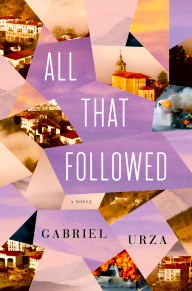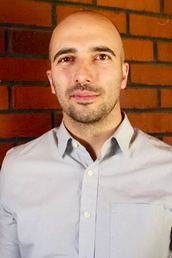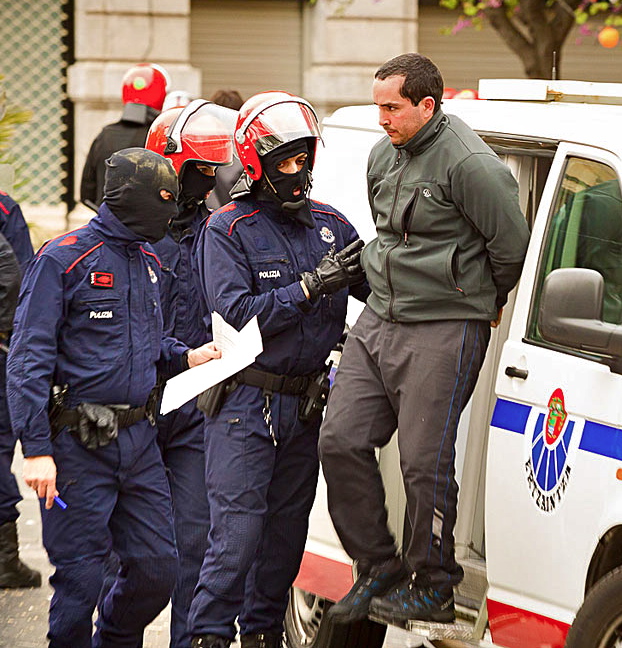“Imagine it like a football game. On the red team, young nationalists. On the blue team, the Ertzaintza [the Basque police]. They agree to unspoken rules. Broken windows are OK. Broken bones are fair game. Graffiti is acceptable, as are rubber bullets and tear gas. An unjust or overly lengthy prison sentence was against the rules. Killing, by either side, was always against the rules.”
Author Gabriel Urza, whose family roots are Basque, lived in the Basque country himself for several years after college before returning to his birthplace in the U.S. to write and practice law, a background which gives this debut novel a sense of atmosphere, a feeling of strong roots, and a sense of the social and political vagaries which sometimes lead to crimes of passion and violence. To set the scene within Spain politically, the author opens and closes the novel with descriptions on a much broader scale – the 2004 bombing of the Atocha train station, outside of Madrid, which killed one hundred ninety-one people and wounded eighteen hundred, the deadliest terrorist attack in Spanish history. Coming as it did just three days before Spain’s general elections, it was widely assumed to have been committed by the ETA, the Basque separatist and nationalist movement known for violence.
The Atocha train bombing, mentioned at the novel’s beginning and end, serves primarily to “bookend” the real action here in the small town of Muriga. When Basque terrorists were thought to have been responsible, the town “changed its dialogue to set itself apart from the terrorists.” Muriga officials “spoke as if it were impossible to consider that this monstrous act might have been carried out by their sons, their nieces, their neighbors. Anything to distance themselves.” And when the terrorists were found instead to have been four Islamists from Morocco, some Basques considered this to be “wonderful news.” All That Followed develops this ironic “relief” of some Basque citizens by showing how their insensitivity may have evolved from their own history, which, in some ways, may have inured them to such violence. Here Urza concerns himself primarily with ordinary life in the Basque country, punctuated by episodes of violence, much of it political, during the course of the sixty years leading up to the Madrid bombing. This far narrower, more manageable focus illustrates the world of terror “writ small,” showing how partisan ideas and ideals develop into violence, often at random, and impact individuals, families, and the future on a more understandable scale.
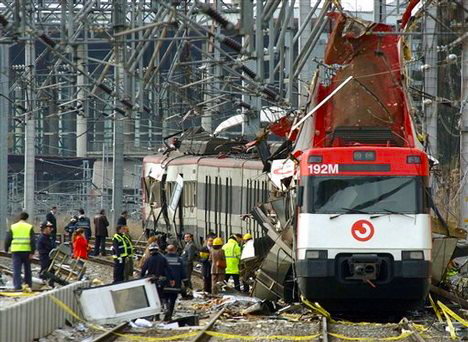
The Atocha train bombing, which killed one hundred ninety-one people and wounded eighteen hundred, the deadliest terrorist attack in Spanish history, occurred on March 11, 2004. Photo by Nicholas Mirzoeff.
The novel, character driven, is told in the voices of three residents of Muriga – Joni Garrett, an elderly American who came to Muriga in 1948 to teach at a local school and never went home; Mariana Zelaia, widow of Jose Antonio Torres, a government official murdered six years before the bombing; and Iker Abarzuza, convicted of Jose Antonio’s murder when he was eighteen, a young man confined to the Salto del Negro Prison in the Canary Islands for the past six years. Each of these characters places a different importance on the present, and as each ponders his/her life, the author maintains a kind of other-worldly atmosphere, shifting the action among the different “presents” as experienced by the main characters. Joni, for example, is an old man whose life between 1948, when he arrived in Muriga and the early 1950s, when he married, is, for him, the best time of his life, a time which he remembers as vividly as if it were still the present. Nothing since then means much to him.
Mariana’s marriage was not happy, and an affair was not satisfying. She identifies with childhood stories of a witch who was burned to death during the Inquisition, a woman who was thought to have been in league with the devil. She herself has had a kidney transplant, after which she experiences a kind of déjà vu, a sense of the supernatural which leads her to believe that part of her personality is now controlled by her kidney’s donor, whom she believes was an ETA terrorist. Her biggest goal is to identify the donor with certainty. Iker Abarzuza’s young life essentially ended when he was arrested and convicted of murder as a teenager. As the novel flashes between his youthful innocence, with his goal of going on to school, and contrasts it with his present life in prison, where he still has twenty-two more years left on his sentence, his missed chances and his wasted “present” now dominate his life. He is grateful for even the tiny connections he still has with those he once knew in Muriga. Like Joni, his former teacher, he is controlled by the past he wishes he had had.
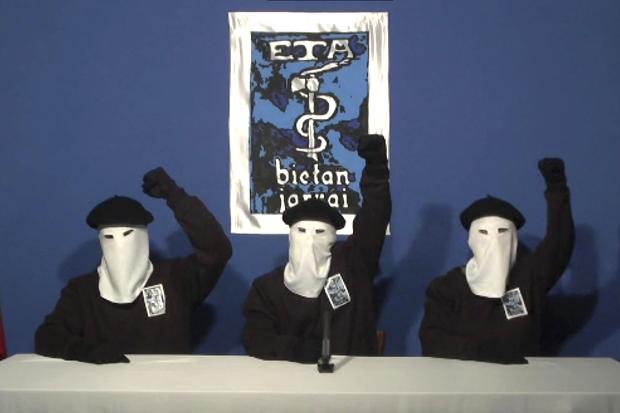
The ETA, masked, holds a press conference in 2012, and announces that they have approved a cease fire and that this may be their last action as an organization.
As the narrative moves among these three characters and their acquaintances in Muriga, the many gaps in the overall story, which help animate the novel’s suspense and interest, get filled in, but because these characters have seen life from such different perspectives, the exact “truth” about what really happens, at various points, is never quite clear. The author lets the characters provide insights, from which each reader, perhaps, will formulate his/her own truth.
Some details of setting add a sense of history which puts the characters’ reactions to events into perspective while also providing important background information about the Basque country: The school where Joni teaches, now filled with
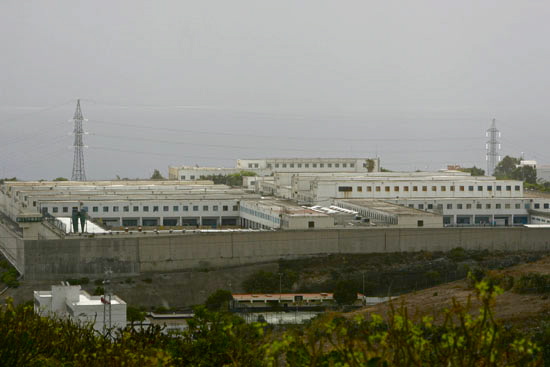
Salto del Negro, a prison in the Canary Islands, is where Iker has spent the past six years, with twenty-two years left to go.
children, was once, ironically, a Republican army barracks. Mariana notes that her grandparents and later her parents were forbidden to speak their native Euskera language for over fifty years, and that many writers and intellectuals were “lost to Franco’s prisons and graveyards.” Iker and his three rebellious teenage friends meet in an old graffiti-covered bunker left over from the Civil War (1936-1939). There, their leader Ramon tells them inspiring stories about “the Basques’ last stand against the dictator’s army…the greatest kind of courage.” Later Iker learns that these are untrue, but “we were looking for outrage in those days; we were looking for martyrs.”
With his multiple points of view, well-drawn characters, shifting time frames, atmospheric style, and unusual historical perspective, Urza has developed a sensitive and often moving novel about a part of the world which is only now beginning to receive literary attention. Though the subject matter of the novel might have been treated sensationally, Urza instead lets his story lines evolve subtly. The dramatic conclusion adds a stunning coda to the action.
ALSO set in Basque country: Bernardo Atxaga’s THE ACCORDIONIST’S SON, Atxaga’s OBABAKOAK, Manuel de Lope’s THE WRONG BLOOD
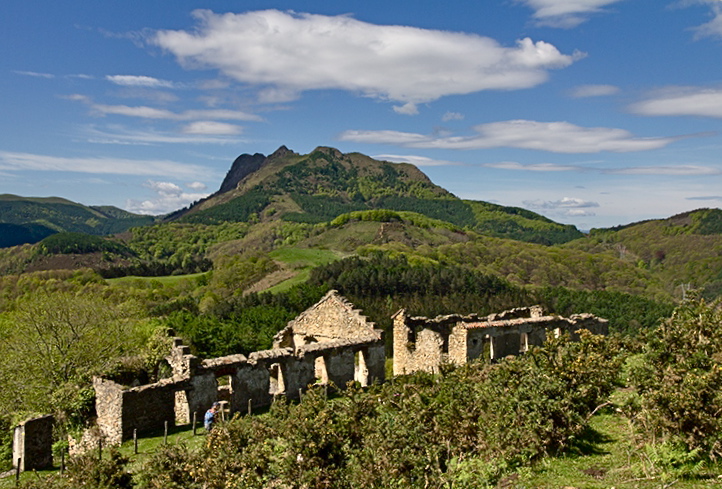 Mariana and her lover’s wife take a hike in the Aiako Harria park refuge
Mariana and her lover’s wife take a hike in the Aiako Harria park refuge
Photos, in order: The author’s photo appears on http://us.macmillan.com/allthatfollowed
The Atocha train bombing in 2004, by Nicholas Mirzoeff, is from http://www.nicholasmirzoeff.com/
The Ertzaintza, the Basque police, photo by Ekin Klik can be found on http://www.ekinklik.org and https://commons.wikimedia.org
The ETA press conference in which they announce their 2012 cease fire, perhaps their final action as an organization, is featured here: https://thebluereview.org/
The Salto del Negro Prison in the Canary Islands isolates Iker so that he sees someone from home only once a year. http://ondafuerteventura.es/[caption id=”attachment_27962″
The Aiako Harria park refuge is where Mariana takes her lover’s wife for a hike: http://almonteparaque.blogspot.com/
ARC: HHolt
